

Data Science for Decision Making Program
Learn key elements from Data Science and Economics to make the correct inferences from data.
(Sep–Jul)
Bellaterra (UAB)
and Ciutadella (UPF)
About this Master’s program
The demand for Data Scientists is growing rapidly, driven by the increasing availability of data and advancements in machine learning. At the same time, decision-making in business, policy, and research requires more than just algorithms; it requires understanding the mechanisms—economic, institutional, and social—that generate the data in the first place.
The Master’s Program in Data Science for Decision Making at the Barcelona School of Economics brings these two worlds together. Unlike general data science degrees, this program combines advanced computational methods with structured thinking about decisions and outcomes. The result is a unique skill set that allows graduates to not only handle complex data but also to translate it into meaningful insights for organizations, governments, and society.
Why combine Data Science and Economics?
Collecting and summarizing data is not enough. We strongly believe that students must not only learn to run algorithms, but to understand why, when, and where they are appropriate. Data are not just numbers—they emerge from strategic, institutional, and market interactions. Therefore, data science improves decision-making only when paired with an understanding of how choices, incentives, and institutions shape outcomes. By combining modern machine learning techniques with the interpretability of social science and economic models, graduates of the program develop a competitive advantage in areas such as:
- Optimal pricing and market design where they combine prediction with incentive-based modeling
- Demand and behavior forecasting by using microdata, time-series, and ML to anticipate outcomes
- Networks and platforms through the analysis of ripple effects in social, digital, and organizational systems
- Policy evaluation by linking predictive models with counterfactual analysis to assess interventions
- Spatial and geo-information analysis through gaining insights from satellite images, geo-localized events, and mobility data
- Text and unstructured data by transforming documents, archives, and news into structured evidence
This combination offers the best of both fields: powerful tools in data management, machine learning and generative AI, combined with the clear insights of economic and social science.
Program Highlights
Advanced training
Students learn modern machine learning, econometrics, and computational statistics alongside decision-making and modeling approaches used in economics and the social sciences.
Practical learning
Students will work with real data – networks, satellite images, text archives, maps, and time-series. They will practice extracting, visualizing, and analyzing data to inform real-world decisions.
Integration of social science and machine learning
The program combines the strengths of machine learning with those of economics and other social sciences. Students are not only able to tackle all data types but they also understand how to model the data generating process for decision making support.
Master’s Thesis Challenge
The BSE Data Science Challenge is a hallmark of the program. Student teams develop solutions to real problems presented by private and public organizations.. The outcomes are developed under the close supervision of Professors from the program to maximize learning and impact.
Here are some of the organizations BSE student teams are working with:
- Columbian Energy – Predictive Modeling for Day-Ahead Pricing in Electricity Markets: A Methodological Approach for Colombia
- Glovo – Analyzing the Impact of Stock-Outs on Sales of Products in an Online Delivery Application
- Innova – BiciMAD: Bike-Sharing System Dataset Creation and Preliminary Hourly Demand Prediction using Machine and Deep Learning Approaches
- Koa Health – Behavioural predictors of personality inferred by passive smartphone sensing
- Novartis – Decoding Abnormal Returns: Unraveling Insights from Pharmaceutical Sector Earnings Calls through Graph-Enhanced Text Analysis
- Novartis – Comparative Analysis of Modeling Approaches for Value-at-Risk Forecasting in the Pharmaceutical Sector: An econometric and ML approach
- Oxera – Automated Feature Extraction from EU Merger Documents: Novel Approaches using LLMs
- UNDP / UNICEF – Harnessing Big Data News Media For Conflict Prediction and Anticipatory Decision-Making
- UNHCR – Forecasting Global Refugee Flows: A Machine Learning approach using non-conventional data
- Virtuleap – Harnessing Big Data News Media For Conflict Prediction and Anticipatory Decision-Making
World-class faculty and practitioners
The program is taught by leading academics in Economics, Statistics, and Operations, alongside professionals from industry, consultancies, and public organizations.
Collaborative environment
By working in interdisciplinary teams, students gain experience that mirrors the data-driven environments of modern firms, international organizations, and research centers.
Is this Master’s for you?
This program is designed for students and professionals who want to go beyond spreadsheets, basic statistics, or ad-hoc coding. Many of our applicants already work with data but feel frustrated by the limits of their current skills—they want to move from “just handling data” to building predictive models, extracting insights, and driving decisions.
Graduates leave with a unique combination of skills in programming, modeling, and applied analysis—prepared to lead data-driven decision-making in any organization.
Discover what makes this program truly exceptional
Integration of Data Science and Economics: Learn data science techniques with economic theory for decision-making support.
Real-World Data Application: Work with complex data sources to solve decision-making problems.
Learn from leading researchers: Professors specialized in the latest Economics, Operations, and Statistic research.
Solve problems submitted by private and public organizations: Work in small teams to solve real decision-making problems submitted by thought leaders in the private and public sector and present your solution to them.
Career Preparation: Graduates go on to work in tech, government, and international organizations.
Meet the Program Directors

Hannes Mueller
PhD, London School of Economics
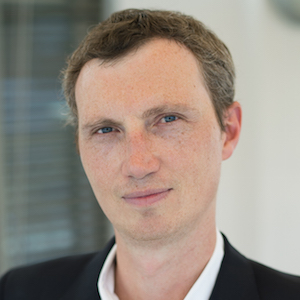
Christian Fons-Rosen
PhD, London School of Economics
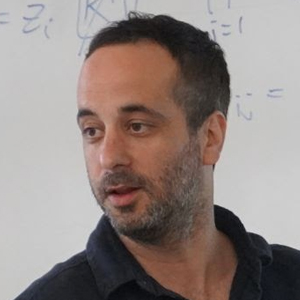
Pau Milán
PhD, Universitat Pompeu Fabra
The program welcomes a wide range of profiles, including:
- Graduates in economics, business, and related social sciences who want to strengthen their quantitative and computational skills.
- Students from engineering, computer science, and mathematics, who want to apply their technical expertise to decision-making in business, policy, and society.
- Professionals with backgrounds in fields such as political science, sociology, history, or tourism, who have experience working with data and want to explore its full potential.
What all students share is:
- An interest in improving their ability to work with data at scale
- A solid foundation in quantitative reasoning and/or programming
- A desire to translate data into better decisions in private firms, consultancies, research centers, or public organizations
What skills and knowledge will you learn?
The ability to extract, handle, and analyze data is a key skill in today’s job market
Data Analysis
Solve Decision-Making Problems
Programming Skills
Cutting Edge Tools
Approach Problems
Professors
BSE Professors are renowned researchers who are published in leading Economics Journals.
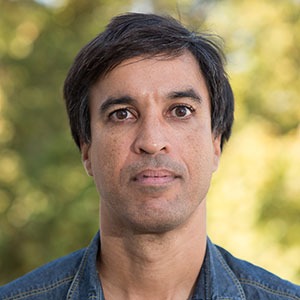
Argimiro Arratia
PhD, University of Wisconsin
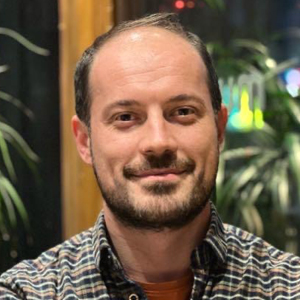
Besim Bilalli
PhD, Poznan University of Technology and UPC

Maite Cabeza Gutés
PhD, University of California Davis
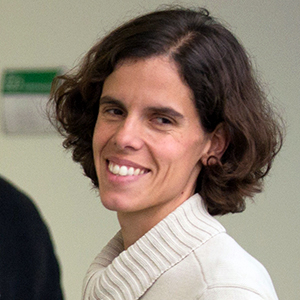
Caterina Calsamiglia
PhD, Yale University

Jesus Cerquides

Bruno Conte
PhD, IDEA (UAB and BSE)
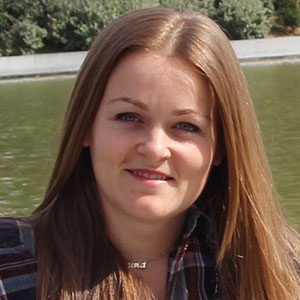
Laura Cozma
Master's in Data Science, BSE
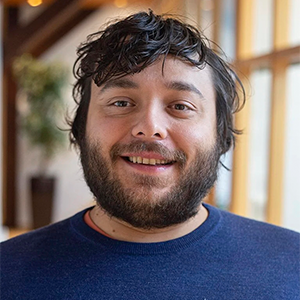
Mihai Croicu

Ruben Enikolopov
PhD, Harvard University

Christian Fons-Rosen
PhD, London School of Economics

Roger Garriga Calleja
Master's in Data Science, BSE

Arnault Gombert
Master's, ENSEA ParisTech and Université Paris-Saclay

Clement Gorin
PhD, University of Lyon

Petar Jovanovic
PhD, UPC and Université libre de Bruxelles

Gaël Le Mens
PhD, Stanford Graduate School of Business
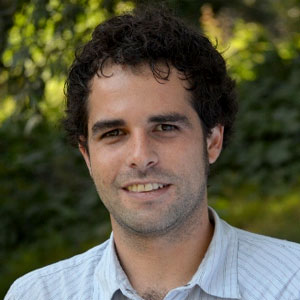
Gianmarco León-Ciliotta
PhD, University of California-Berkeley
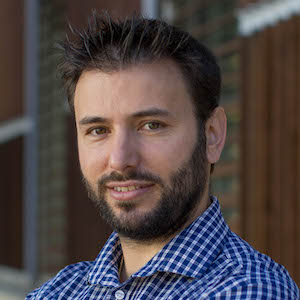
Joan Llull
PhD, CEMFI

Javier Mas Adell
Master's in Data Science, BSE

Laura Mayoral
PhD, Universidad Carlos III de Madrid

Pau Milán
PhD, Universitat Pompeu Fabra

Hannes Mueller
PhD, London School of Economics
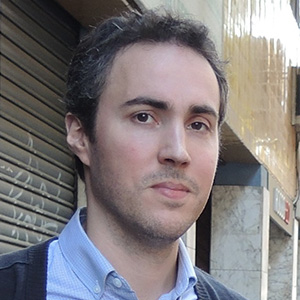
Daniel Navarro-Martínez
PhD, Universitat Jaume I

Edoardo Nemni
Technical University of Denmark

Florens Odendahl
PhD, Universitat Pompeu Fabra
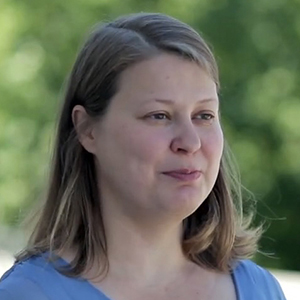
Maria Petrova
PhD, Harvard University

Aleix Ruiz de Villa
PhD (Mathematical Analysis), UAB

Hanna Wang
PhD, University of Pennsylvania

Isaac Baley
PhD, New York University

Juan Antonio Rodríguez Aguilar
Program Schedule
In September, students are required to take a brush-up course in Mathematics and Statistics.
Students who can provide evidence of sufficient past coursework may be exempt: An Intermediate Course in Mathematics and Statistics.
Instructors: Sophie Brochet and Margherita Philipp.
Term 1 (September-December)
Term 2 (January-March)
| Course title | Credits | Professor(s) |
|---|---|---|
| Mandatory | ||
| Computational Learning and Deep Learning | 3 | Mihai Croicu |
| Causal Inference and Machine Learning | 3 | Aleix Ruiz de Villa, Laura Mayoral |
| Introduction to Text Mining and Natural Language Processing | 3 | Hannes Mueller |
| Electives | ||
| Geospatial Data Science and Economic Spatial Models | 3 | Bruno Conte |
| Networks: Concepts and Algorithms | 3 | Pau Milán |
| Financial Econometrics | 6 | Josep Anton Sànchez-Espigares |
| Behavioral Decision Making I: Attention, Experience and Influence* | 6 | Gaël Le Mens |
Term 3 (April-June)
| Course title | Credits | Professor(s) |
|---|---|---|
| Mandatory | ||
| Master Project | 6 | Hannes Mueller, Christopher Rauh, Vanina Martínez |
| Advanced Methods in Natural Language Processing | 3 | Arnault Gombert |
| Electives | ||
| Forecasting and Nowcasting with Text as Data | 3 | Hannes Mueller, Florens Odendahl |
| Intelligent Data Development | 3 | Laura Cozma, Javier Mas Adell |
| Machine Learning for Finance | 3 | Argimiro Arratia |
| Applications of Deep Learning in High Dimensional Data Analysis and Image Processing | 3 | Edoardo Nemni, Clement Gorin |
| AI Ethics | 3 | Carles Murillo Mir |
| Big Data Management for Data Science | 3 | Besim Bilalli, Petar Jovanovic |
| Behavioral Decision Making II: The Psychology of Economics Decisions* | 6 | Daniel Navarro-Martínez |
| Extra Workshop | ||
| Cloud Computing | 0 | Mifra Burneo |
Master’s Projects
Examples of Master's Projects
Class of 2025:
- Verifiable Report Generation: A GraphRAG Approach to Grounded Security Analysis by Blanca Jiménez, Pablo Fernández Alburquerque, and Anastasiia Chernavskaia
- Algorithmic Collusion and Pricing with LLM Agents by Moritz Peist, Julian Romero, and Lucia Sauer
Class of 2024:
- How to generate new versions of an original character? An application of LoRA and DreamBooth Fine-Tuning of Stable Diffusion Models by Maëlys Boudier, Natalia Beltrán and Arianna Michelangelo.
- War Through the Lens of AI: Image Analysis of the Russia-Ukraine War in Spanish News by Oliver Gatland, Viktoriia Yuzkiv and Angelo Di Gianvito.
Class of 2023:
- Harnessing Big Data News Media for Conflict Prediction and Anticipatory Decision-Making by Giovanna Chaves, Margherita Philipp, and Luis Quiñones.
- Corpus Construction and Social Media Analysis about Immigration in Chile by Andrés Antonio Couble, Mathias Schindler, and Kalliope Stassinos.
- Forecasting Global Refugee Flows: A Machine Learning Approach using Non-conventional Data by Daniela de los Santos, Eric Frey, and Renato Vassallo.
Students in this Master’s program can use problems submitted by organizations and turn them into a Master’s project. Here are some recent examples:
- Glovo, Analyzing the Impact of Stock-Outs on Sales of Products in an Online Delivery Application.
- Novartis, Comparative Analysis of Modeling Approaches for Value-at-Risk Forecasting in the Pharmaceutical Sector: An econometric and ML approach.
- Oxera, Automated Feature Extraction from EU Merger Documents: Novel Approaches using LLMs.
- UNDP / UNICEF, Harnessing Big Data News Media For Conflict Prediction and Anticipatory Decision-Making.
- UNHCR, Forecasting Global Refugee Flows: A Machine Learning approach using non-conventional data.
Master’s degree awarded by UAB and UPF
Upon successful completion of the BSE Data Science for Decision Making Program, students will receive a Master’s Degree in Data Science awarded jointly with Universitat Autònoma de Barcelona (UAB) and Universitat Pompeu Fabra (UPF).
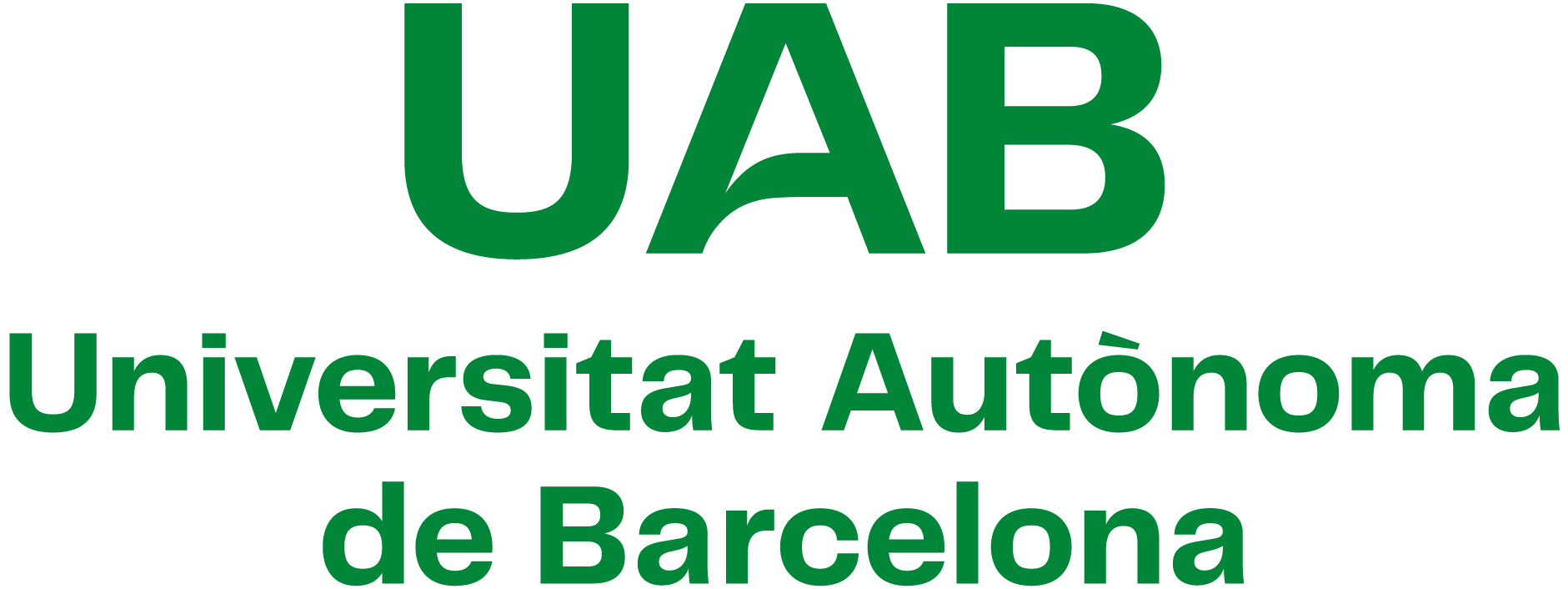
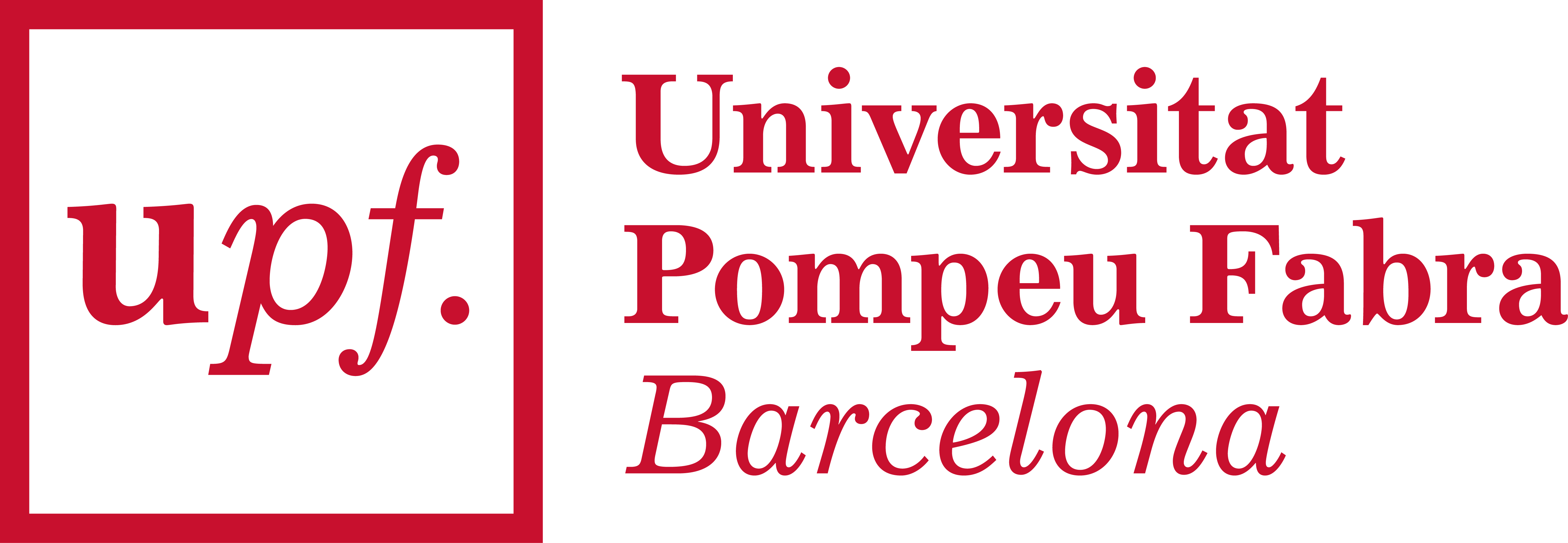
All Barcelona School of Economics Master’s degrees have been recognized by the Catalan and Spanish Education authorities within the framework of the Bologna Process (in Spanish, “Master Universitario o Master Oficial”).
Placement Rate, 2024 Cohort
Within 6 months of graduation:
- Job titles: Data Scientist, Data Analyst, AI Consultant, Intern, Research Assistant
- Industries: Technology (37%), Consulting (21%), Research & Academic Institutions (16%)
- Companies: European Central Bank (ECB), IBM, BlackRock, BNP Paribas, Deloitte
- Higher Education: 9.5% go on to a PhD or further education.
Work Internationally
Cities with the most alumni





Testimonials

Luke Atazona
The highlight of this program has been the amazing professors, who are reputable in the world in their area. The program offers a good balance of theory and application which are very useful for today’s labor market. I have learned a lot of data science theories and been able to apply them in numerous case studies. I have also been able to broaden my knowledge in programming.
Why study a Master’s at BSE
Ranked among the top institutions for economics research in the world by RePEc.
Prestigious economists including Nobel Laureates guide the development of BSE Master’s.
Learn from well-renowned faculty.
Study in vibrant Barcelona.
Admissions and Entry Requirements
At BSE, we look for excellence. Key elements of a strong application are a high GPA, a sound statement of purpose, and standout reference letters. Strong knowledge of Economics and good quantitative skills are also recommended.
Requirements:
- An undergraduate/bachelor/grado/laurea, or equivalent degree from an accredited college or university (for Bologna degrees, a minimum of 180 ECTS are required).
- University diploma in Economics, Finance, Engineering, Mathematics, Statistics, or Business Administration. Students with academic backgrounds in other subjects will be considered.
- An advanced level of English language skills: TOEFL score of 90 or above; IELTS Academic Test score of 6.5 or above, Duolingo English Test 120 points.
Candidates will also be evaluated on the following admission criteria:
- Outstanding academic record.
- Quantitative skills.
- Reference letters.
Fees and funding
Tuition Fee
Student Fee: €19,500
Tuition Funding and Scholarships
Funding opportunities at BSE are awarded on the basis of academic excellence. All applicants admitted to a BSE Master’s program have demonstrated strong potential to succeed in a demanding and rigorous academic environment. In recognition of exceptional achievement, the most competitive candidates may also receive financial support to help cover tuition costs, fully or partially.
The available funding may include:
- Tuition waivers of 25%, 50%, 75%, or 100%
- A small number of fully funded scholarships, which may also include a living stipend, depending on the award
Financial offers are extended only to applicants with outstanding academic profiles. To be considered for the full range of funding options, candidates should complete their application by January 15. Applications submitted after that date will be considered for any remaining funds.
FAQ
Below you will find our most frequently asked questions but do not hesitate to contact the BSE Admissions Team to learn more about our Master’s programs.
What are the most common student profiles in the Data Science for Decision Making Program?
25 students from 14 countries (84% international) in 2024-2025
Most represented countries this year:
- Spain (4)
- Germany, India, Russia (3 students each)
Most common academic backgrounds:
- Economics (16)
- Business Administration (3)
Years of work experience:
- 0-1 years (8)
- 1-2 years (5)
- 2-3 years (6)
- 3 years and above (6)
Who hires Data Science for Decision Making Program graduates?
Graduates of the Data Science for Decision Making Program secure roles across sectors such as technology, consulting, and research and academic institutions. Learn more about the specific positions, companies, and locations of these placements (cohorts of 2021, 2022 and 2023) in this document.
Which rankings is the Barcelona School of Economics listed in?
The BSE Rankings Page displays this information.
Can I apply to more than one program?
You may apply to up to three programs for the same academic year
Can I apply for tuition funding?
We will automatically assess whether students meet the eligibility criteria for tuition waivers, and we will also promote eligible candidates for scholarships provided by external funders.
What level of English do I need to have for this Master’s?
An advanced level of English is required: TOEFL score of 90 or above; IELTS Academic Test score of 6.5 or above; Duolingo English Test 120 points
Do I need to take the GRE General Test to apply?
The GRE General Test is optional, but we highly recommend you submit it with your application
Can I enter another BSE Master's directly from this program?
Students who successfully complete the Data Science for Decision Making Program are eligible for direct admission to the following programs, if they stay for a second consecutive year:
Master’s Degree in Economics and Finance:
OR
Master’s Degree in Specialized Economic Analysis:
- Competition and Market Regulation
- Economics of Energy, Climate Change, and Sustainability
- Economics of Public Policy
- International Trade, Finance, and Development
- Macroeconomic Policy and Financial Markets
A 20% discount will be applied on the second program’s tuition fees. All BSE Alumni are eligible for this discount at any time. Learn more about taking a second BSE Master’s degree.
Related Master’s Programs

Related Research Publications
See allEconomics. All rights reserved.







